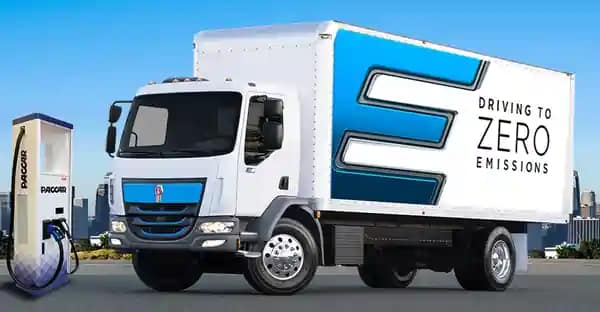Ranchi, 19th February 2025: Smart Freight Centre India (SFC) hosted a workshop on Zero Emission Trucks (ZET), in Ranchi today, as part of its nationwide program aimed at driving the adoption of ZETs in India’s medium and heavy-duty truck (MHDT) sector. The workshop, in collaboration with Department of Industries, Government of Jharkhand, convened key stakeholders from across the ecosystem to discuss challenges, opportunities, and actionable strategies for accelerating ZET adoption.
This workshop was part of a pan India campaign under Niti Aayog’s e-FAST initiative aimed at enhancing the regional ecosystem readiness with curated knowledge share and deliberations on ZETs, covering topics across technological and operational aspects, global ecosystem developments, Government of India e-truck initiatives, city level ZET adoption opportunities, operational risks and deployment SOPs. SFC collaborated with Bodhi as a knowledge partner to deliver this workshop and activate the sustainable logistics ecosystem in Jharkhand. (Smart Freight Centre)
The workshop included a dynamic roundtable discussion, moderated by Shri Sharat Singh, Rural Development Advisor, Ranchi, GIZ India, featuring key leaders such as Shri Nitish Kumar (IFS, DFO, Ramgarh, Forest, Environment & Climate Change, Jharkhand), Shri Ravindra Kumar (JAS, Deputy Administrator, Municipal Corporation, Ranchi), Shri Atilesh Gautam (Electrical Executive Engineer – cum- SDA In charge, JREDA, Ranchi), Shri Munna Jha (Head of Climate Action (Bihar & Jharkhand), ASAR), Dr. Shashidhar Jha (Director, Research and Knowledge Products, Bodhi). Together, they deliberated on strategies to overcome barriers to ZET adoption and explored opportunities for collaboration aimed at driving long-term environmental and economic benefits.
Shri Sushant Gaurav, IAS, Director, Department of Industries, Government of Jharkhand, in his keynote address, said, “In Jharkhand, we are committed to being at the forefront of transformation toward a sustainable future, with initiatives like zero-emission trucks playing a pivotal role. Our state is rich in minerals, including 18 rare earth elements, which positions us strategically in the clean energy transition. We are actively encouraging research and development to build a future-ready ecosystem while working to reduce dependencies on imports.” (Smart Freight Centre)
He added, “Jharkhand’s ‘Electric Vehicle Policy 2022’ is designed to boost EV manufacturing and sales through various incentives, reinforcing our push for green mobility solutions. The shift towards ZETs is not just an economic and employment-driven necessity but also a critical environmental opportunity. I commend initiatives like the ZET Enablement Workshop for fostering collaboration among stakeholders to drive a more sustainable and efficient freight industry in India.” The workshop also featured an insightful presentation on ZETs by Ashok Leyland, highlighting advancements in sustainable transportation. Additionally, the World Resources Institute (WRI) conducted a session on the PSA Bharat Policy Advisory for ZETs, providing valuable insights into policy frameworks and strategic recommendations for accelerating adoption.
The workshop highlighted India’s growing $4.11 trillion economy as a key driver for freight decarbonization. With road transport handling 70% of domestic freight and contributing 213 Mt of CO₂ annually, of which 83% comes from heavy goods vehicles, accelerating ZET adoption is crucial. The PM E-Drive scheme’s ₹500 crore allocation for e-trucks is expected to boost adoption, emphasizing the need for coordinated industry and policy efforts. By 2050, ZETs could eliminate 838 billion litres of diesel, save ₹116 lakh crore in oil costs, and cut greenhouse gas emissions by 46%, underscoring the importance of collaborative action.
Advertisement – Do you want to become an artist? Do you want to make your name in the film industry?
Shri Nitish Kumar, IFS, DFO, Ramgarh, Forest, Environment & Climate Change, Jharkhand, emphasized, “ZETs play a crucial role in building a greener and more resilient economy by reducing transportation-related greenhouse gas emissions and enhancing energy security. However, this transition requires a collaborative effort from policymakers, industry leaders, financial institutions, and technology innovators. Expanding charging infrastructure and raising awareness about the need for ZETs are essential steps in accelerating their adoption.”
Key highlights:
- SFC shared the current stance of global ecosystem for e-trucks and its future projections followed by India’s role in the global ecosystem.
- The workshop delved into the need for a cleaner freight paradigm to address the socio-economic and environmental challenges in the landscape.
- The workshop highlighted the urgent need to raise awareness about the business, operational, cost economics and sustainability benefits of ZETs, aiming to drive the transition to sustainable freight practices.
- Attendees gained critical insights into deployment pathways for ZETs while addressing regulatory and infrastructure challenges that currently hinder their adoption.
- The workshop successfully initiated discussions on establishing regional networks and governance frameworks to leverage the region-specific freight electrification opportunities and support the effective deployment of ZET projects across India.
The ZET Enablement Workshop Series brings together city authorities, OEMs, policymakers, LSPs, and shippers to shape sustainable logistics solutions. Previous consultations in cities like Indore, Chennai, Hyderabad, Delhi and Thiruvananthapuram have addressed operational risks and SOPs to facilitate ZET adoption.
About Smart Freight Centre India:
Smart Freight Centre (SFC) is a global non-profit focused on climate action in the freight sector. Launched in May 2023, the SFC India program collaborates with the Indian freight sector to reverse the projected 400% increase in CO2 emissions by 2047. SFC partners with NITI Aayog’s e-FAST and key stakeholders to drive freight electrification and decarbonization in India.







